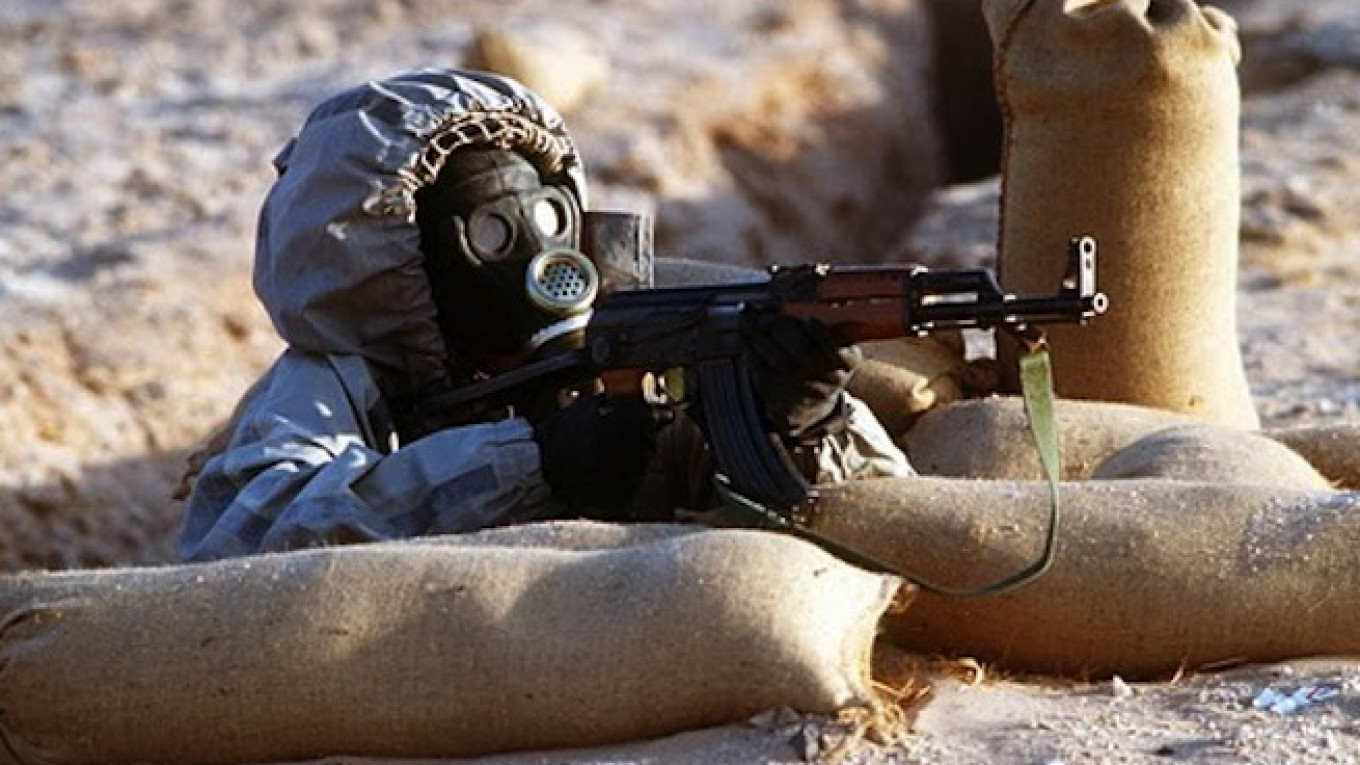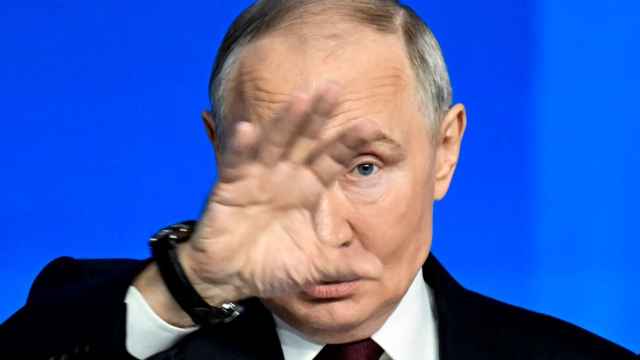The UN has confirmed that the destruction of Syria's chemical arsenal will not be completed by June 30, a final deadline set as part of a 2013 deal that averted U.S. air strikes against Syrian President Bashar Assad's government.
In a letter to the Security Council, UN Secretary-General Ban Ki-moon urged the Syrian government to finish "remaining removal operations as quickly as possible, as the authorities have pledged to do."
"However, it is now evident that some activities related to the elimination of the chemical weapons program of the Syrian Arab Republic will continue beyond 30 June 2014," Ban said in the letter on Wednesday.
He also voiced concern about allegations that chlorine gas has been used in recent fighting in Syria and urged all sides in the conflict to cooperate with an investigation launched by the global chemical weapons watchdog.
Assad, embroiled in the fourth year of a civil war with rebels fighting to oust him, agreed last year to hand over the country's entire chemical weapons stockpile and ensure its total destruction by June 30 after hundreds of people were killed in a sarin nerve gas attack near Damascus.
The September agreement with Russia and the U.S. averted U.S. military strikes threatened in response to the worst chemical weapons attack in decades, which Washington and its European allies blamed on Assad's government.
His government, which denies the allegation and blames the rebels for all chemical attacks in Syria, still has roughly 7 percent of 1,300 metric tons it declared to the Organization for the Prohibition of Chemical Weapons, or OPCW, enough highly toxic material to carry out a large-scale attack.
Ban said he expected a joint UN-OPCW mission overseeing the elimination of the Syrian poison gas stocks "will continue its work for a finite period of time beyond 30 June, 2014."
Assad's government has already indicated it wants the mission shut down as soon as all chemicals are shipped out of Syria. But Western governments want it to continue working for the foreseeable future.
Western officials say they want the UN-OPCW mission to continue investigating what they describe as ambiguities in Syria's chemical weapons declaration. They have cited U.S., French and British intelligence that Assad's government failed to disclose all of its poison gas stocks.
The Syrian government has missed several deadlines, most recently its own promise to hand over the remaining chemicals by April 27. It has also failed to destroy a dozen facilities that were part of the chemical weapons program.
The government has blamed those failures on security problems and rebel activities, but Western officials have voiced skepticism about those explanations.
See also:
First Load of Chemical Weapons Removed From Syria
Russia, U.S. Agree on How Syria Should Eliminate Chemical Arms, Putin Says
A Message from The Moscow Times:
Dear readers,
We are facing unprecedented challenges. Russia's Prosecutor General's Office has designated The Moscow Times as an "undesirable" organization, criminalizing our work and putting our staff at risk of prosecution. This follows our earlier unjust labeling as a "foreign agent."
These actions are direct attempts to silence independent journalism in Russia. The authorities claim our work "discredits the decisions of the Russian leadership." We see things differently: we strive to provide accurate, unbiased reporting on Russia.
We, the journalists of The Moscow Times, refuse to be silenced. But to continue our work, we need your help.
Your support, no matter how small, makes a world of difference. If you can, please support us monthly starting from just $2. It's quick to set up, and every contribution makes a significant impact.
By supporting The Moscow Times, you're defending open, independent journalism in the face of repression. Thank you for standing with us.
Remind me later.






